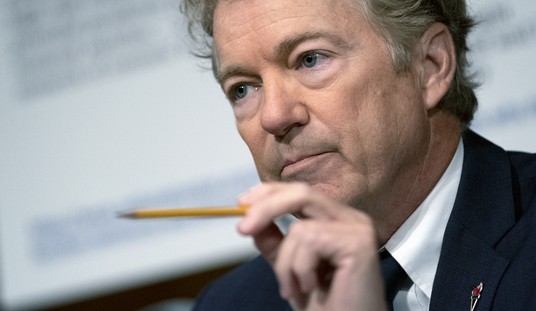ObamaCare is at the center of a rapidly escalating fight that threatens to shut the government down this fall.
Senate Republicans, including two members of the leadership, are coalescing around a proposal to block any government funding resolution that includes money for the implementation of the 2010 Affordable Care Act…
“This is the last stop before ObamaCare fully kicks in on Jan. 1 of next year for us to refuse to fund it,” [Mike] Lee said Monday on “Fox and Friends.”
“If Republicans in both houses simply refuse to vote for any continuing resolution that contains further funding for further enforcement of ObamaCare, we can stop it. We can stop the individual mandate from going into effect,” he said.
Lee similarly suggested in a Friday interview on WBAL 1090 AM that he and other Republicans would be willing to shut down the government.
“I’ll utilize every procedural mechanism at my disposal to do it,” he said. “I generally don’t signal in advance what procedural maneuvers exactly I’ll use because it’s usually not good strategy. But what I am saying is I will not vote for a continuing resolution that contains funding for further Obamacare implantation and enforcement. So far I have got, I don’t know, 13 or 14 Senate Republicans who have joined me. I think a corresponding effort is starting to be kicked off in the House. And I expect these numbers to grow steadily as Americans realize the president has said he’s not going to implement the law as written. If he’s not going to implement the law, we shouldn’t be forced to fund it.”
The landmark health-reform law passed in 2010 has never been very popular and always highly partisan, but a new Washington Post-ABC News poll finds that a group of once loyal Democrats has been steadily turning against Obamacare: Democrats who are ideologically moderate or conservative.
Just after the law was passed in 2010, fully 74 percent of moderate and conservative Democrats supported the federal law making changes to the health-care system. But just 46 percent express support in the new poll, down 11 points in the past year. Liberal Democrats, by contrast, have continued to support the law at very high levels – 78 percent in the latest survey. Among the public at large, 42 percent support and 49 percent oppose the law, retreating from an even split at 47 percent apiece last July.
The shift among the Democratic party’s large swath in the ideological middle– most Democrats in this poll, 57 percent, identify as moderate or conservative – is driving an overall drop in party support for the legislation: Just 58 percent of Democrats now support the law, down from 68 percent last year and the lowest since the law was enacted in 2010.
Few things are more important to the White House this year than a successful health care rollout on Oct. 1, when millions of uninsured Americans will be required to obtain private health coverage in government-run marketplaces. Getting it right — or wrong — will help determine Mr. Obama’s place in history.
Enter the Obamacare Team, some two dozen political operators and data-crunching technocrats charged with carrying out the biggest health care overhaul since Medicare in the 1960s — but with more pitfalls. Their job is to sell the law to large numbers of Americans who remain divided about its value and wary of its impact. Republicans have seized on one Democratic description of the health care law as a “train wreck,” particularly after the administration announced a politically damaging one-year delay in a key provision of the law.
Working out of war rooms in the West Wing basement, the Eisenhower Executive Office Building and the Department of Health and Human Services, the team is first trying to find in the next year 2.7 million uninsured people between 18 and 35, most of whom are healthy. Just as Mr. Obama’s electoral success hinged on the turnout machine he created in Chicago, the fate of the health care law rests on whether his administration can turn out and enroll the uninsured.
A majority of adults don’t want to repeal the Affordable Care Act, according to the latest United Technologies/National Journal Congressional Connection Poll, preferring instead to either spend more on its implementation or wait to see if changes are needed later…
Given the choice to either repeal the law, wait and see how it takes effect, or add money to aid its implementation, only 36 percent of adults picked outright repeal. More than half chose to either wait and see (30 percent) or provide more money (27 percent)…
And when told that an independent Congressional Budget Office study had determined that repealing Obamacare would actually increase the deficit, a narrow plurality of respondents preferred to keep the law. On the question, 48 percent said “Congress should keep the program to expand coverage because it’s important to reduce the number of Americans without health insurance,” while 42 percent said “Congress should repeal the program to expand coverage because the government can’t afford it at a time of large budget deficits.”
On the other hand, a lot of thoughtful conservatives are looking beyond Oct. 1 to Jan. 1, the day the law (except for the parts the president has unilaterally postponed) is scheduled to go fully into effect. On that day the government will begin subsidizing health insurance for millions of Americans. (A family of four with income as high as $88,000 will be eligible for subsidies.) When people begin receiving that entitlement, the dynamics of the Obamacare debate will change.
At that point, the Republican mantra of total repeal will become obsolete. The administration will mount a huge public relations campaign to highlight individuals who have received government assistance to help them afford, say, chemotherapy, or dialysis, or some other life-saving treatment. Will Republicans advocate cutting off the funds that help pay for such care?
The answer is no. Facing that reality, the GOP is likely to change its approach, arguing that those people should be helped while the rest of Obamacare is somehow dismantled…
“The last few months have shown us that the administration will do whatever it needs to do — whether it is in the law or not, within its formal powers or beyond them — to prop up collapsing elements and avoid political disasters in the near term,” said Yuval Levin, a former Bush administration staffer and one of Obamacare’s most perceptive critics, in an email exchange. “That often means pure ad hoc governing where they just do whatever they have to in order to avoid allowing the system’s worst problems and failings to become apparent in the near term.”
Once Americans can take advantage of the law’s benefits—once more low-income people become eligible for Medicaid, and once more low- and middle-income people start to get subsidies that will help them buy private insurance—taking those benefits away will be nearly impossible, particularly since Republicans still haven’t proposed an alternative that would come close to providing the same level of security.
As for the idea that the people who benefit will be outnumbered by those who suffer, that’s possible but highly unlikely. As we’ve seen in the intense back-and-forth over “rate shock” for young people, Obamacare critics tend to assume it’s a narrow, very poor group of Americans who will take advantage of the protection the law provides. But about 27 million people are going to end up on Medicaid or in the new insurance exchanges by 2017, according to the Congressional Budget Office. (Even more will end up on Medicaid if states refusing to expand their programs relent.) These people will be disproportionately low-income, but several million will be middle-income…
Plenty of things could still go wrong in the immediate future, of course. Obamacare is not the law most of its supporters originally wanted. It’s less generous, more complicated, and less efficient. It also depends on skill and good faith from state officials, many of whom are actively hostile to it. (Steve Benen recently counted seven ways officials hostile to Obamacare are trying to sabotage it.) The online insurance marketplaces might crash when they go online; people who need guidance might not be able to find reliable sources of it; states might be slow to figure out eligibility for low-income supports. The list of potential problems goes on. For the most part, these problems will mean delaying help for people already having a hard time. They will not have much effect on everybody else. And while the media will highlight these stories—as they should—it will also have other stories to tell, about many millions of people getting the financial security and access to care that has long eluded them.








Join the conversation as a VIP Member